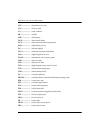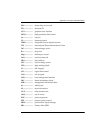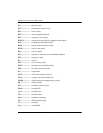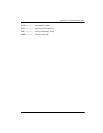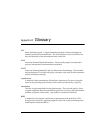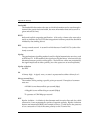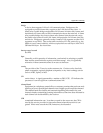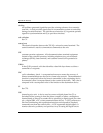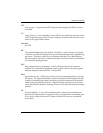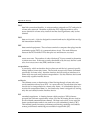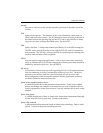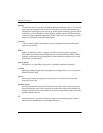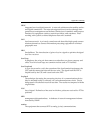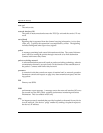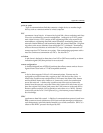
Appendix D. Glossary
D-4 TSU IQ+ User Manual 61200275L1-1
clocking
An oscillator-generated signal that provides a timing reference for a transmis-
sion link. A clock provides signals used in a transmission system to control the
timing of certain functions. The clock has two functions: (1) to generate periodic
signals for synchronization and (2) to provide a time base.
code violation
See CV.
control port
The electrical interface between the TSU IQ+ unit and a control terminal. The
control terminal is used to communicate commands to the unit.
CPE
customer premise equipment. All telecommunications terminal equipment
located on the customer premises, including telephone sets, private branch
exchanges (PBXs), data terminals, and customer-owned coin-operated tele-
phones.
C/R bit
In the Q.921 protocols, a bit that identifies a data-link-layer frame as either a
command or a response.
CRC
cyclic redundancy check. A computational means to ensure the accuracy of
frames transmitted between devices in a frame relay network. The mathematical
function is computed, before the frame is transmitted, at the originating device.
Its numerical value is computed based on the content of the frame. This value is
compared with a recomputed value of the function at the destination device.
CS
See CTS.
CSU
channel service unit. A device used to connect a digital phone line (T1 or
Switched 56 line) coming in from the phone company to either a multiplexer,
channel bank, or directly to another device producing a digital signal (for exam-
ple: a digital PBX, a PC, or data communications device). A CSU performs cer-
tain line-conditioning and equalization functions and responds to loopback
commands sent from the central office. A CSU regenerates digital signals. It
monitors them for problems, and provides a way of testing the digital circuit.



